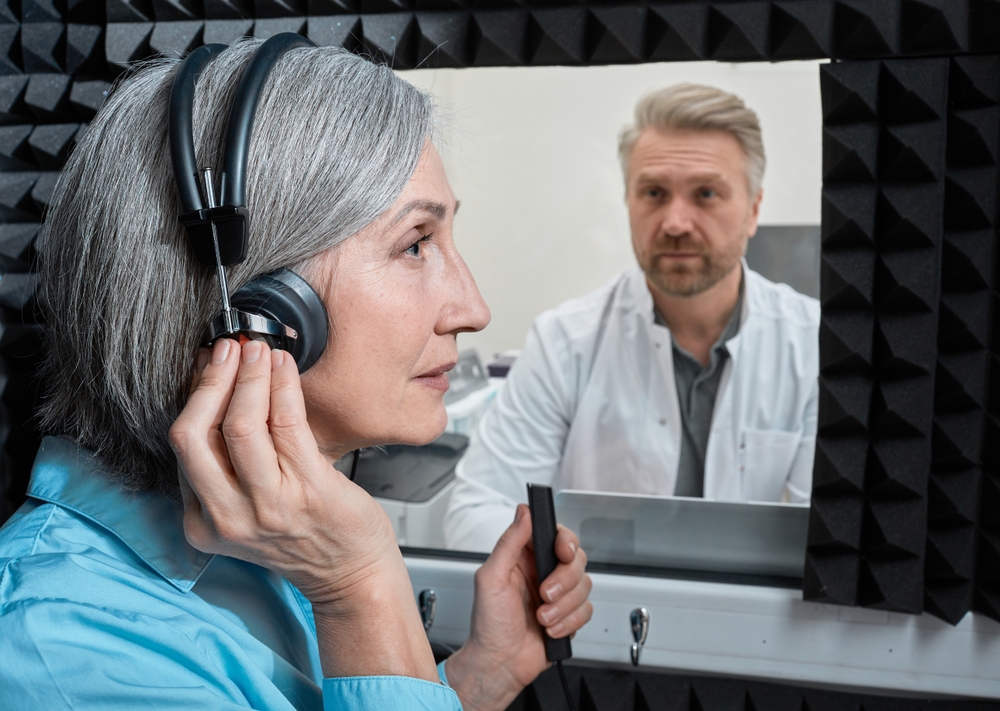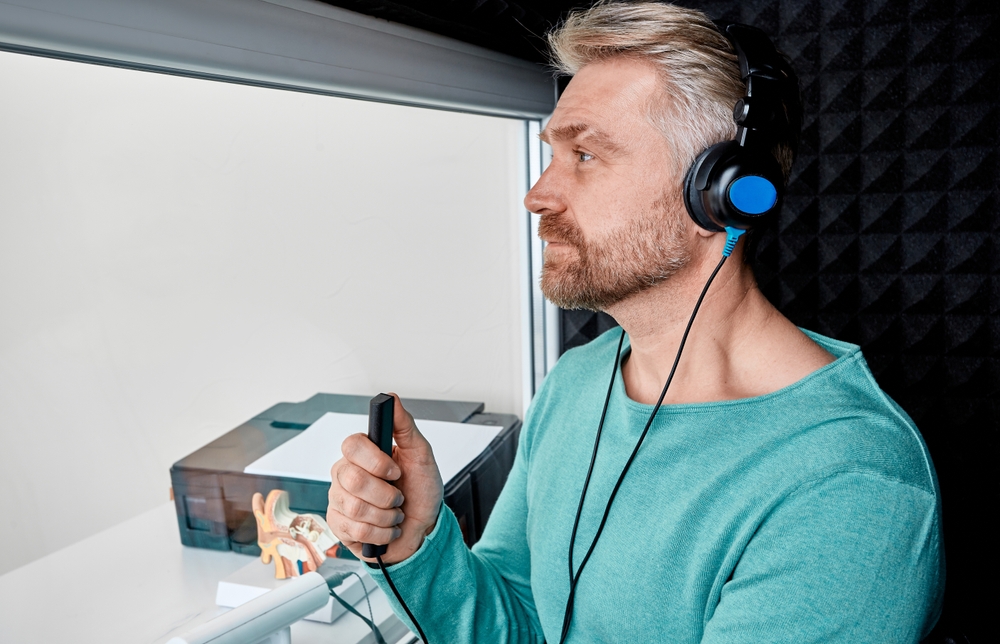Scheduling a hearing test is an important step toward understanding and managing your hearing health. Whether it’s your first test or a routine checkup, preparation is essential to get the most accurate results. Fortunately, preparing for your hearing test doesn’t require complex planning—just a few simple steps can make all the difference. Here’s everything you need to know to ensure you’re ready for your hearing evaluation.
Why preparation matters for a hearing test
Taking the time to prepare for your hearing test can enhance your experience and ensure that your hearing specialist gets a clear understanding of your hearing health. With the right preparation, you’ll be able to make the most of your appointment and ensure that any potential hearing issues are caught early.
7 tips to prepare for your hearing test
Follow these essential steps to ensure a smooth and productive hearing test:
1. Track your hearing challenges
The first step in preparing for your hearing test is to pay attention to any hearing difficulties you’ve been experiencing. Hearing loss can manifest in different ways, so it’s important to document specific situations when you struggle the most. Do you find it hard to follow conversations in noisy environments? Is it difficult to hear on the phone or while watching TV? Take note of when these challenges occur, the severity, and how long they last. Having this information ready for your hearing specialist will allow them to evaluate your symptoms more thoroughly and provide a tailored assessment.
2. Research hearing aid options
If you’re already thinking about hearing aids, now is the perfect time to familiarize yourself with the various types available. There are different styles of hearing aids, each with distinct features. Some are designed for specific types of hearing loss, while others offer extra functionalities like Bluetooth connectivity or advanced sound processing. Being informed about hearing aid options will help you engage in a more productive conversation with your hearing specialist. They will be able to guide you toward the most suitable solution for your needs, based on the results of your hearing test.
3. Review your medical history
Your overall health can have an impact on your hearing, so providing a detailed medical history to your hearing specialist is critical. Make a list of any previous surgeries, chronic conditions, and medications you’re currently taking. Don’t forget to mention if you use any medical devices, like a cochlear implant or a hearing aid. This information helps your specialist understand potential contributing factors to your hearing loss and ensures that they can provide the best treatment recommendations.
4. Protect your hearing before the test
To ensure the accuracy of your hearing test results, it’s crucial to protect your ears in the days leading up to your appointment. Excessive exposure to loud noises, such as attending concerts or working in a noisy environment, can temporarily affect your hearing. Try to avoid these situations to ensure that your test results reflect your true hearing abilities. This extra precaution helps guarantee that your hearing test is as precise as possible.
5. Confirm your insurance coverage
Before your hearing test, take the time to review your insurance policy to understand your coverage for hearing services. Insurance plans vary widely when it comes to covering hearing tests, hearing aids, and related services. It’s a good idea to check with your insurance provider to ensure you’re aware of any out-of-pocket costs you might incur. If you have questions about what is or isn’t covered, ask your hearing specialist for guidance—they may have experience working with your insurance provider and can help clarify any concerns.
6. Bring a friend or family member
While you may feel comfortable attending the hearing test on your own, bringing a trusted companion can be beneficial. A friend, family member, or caregiver can offer support by taking notes during your consultation or helping you remember important details discussed. They can also provide additional insight into your hearing challenges that you may not have noticed. Having a second pair of ears in the room can make your experience more comfortable and informative.
7. Be ready to discuss results
Unlike many other medical tests, hearing test results are typically available immediately. You’ll likely have a chance to discuss the results right after the test is complete. This is your opportunity to ask questions, explore treatment options, and discuss next steps. Whether the test reveals a need for hearing aids, sound therapy, or other hearing health solutions, being prepared to engage in this conversation will help you make informed decisions about your hearing health.
Additional tips for a successful hearing test
In addition to the steps above, it’s helpful to be rested, avoid earwax build-up, and to stay calm and relaxed.
- Be Rested: Arriving at your appointment well-rested can help you focus during the test. Fatigue may affect your ability to listen and respond during the test, leading to inaccurate results.
- Avoid Earwax Build-Up: Earwax can interfere with your hearing test. If you know that you have an issue with earwax, consider having it cleaned by a professional before your appointment.
- Stay Calm and Relaxed: While it’s natural to feel nervous before a medical test, try to stay calm. Stress or anxiety may affect your ability to focus during the test, so take deep breaths and approach the session with a relaxed mindset.
Find a hearing specialist near you
By taking these seven steps, you’re setting yourself up for a successful hearing test. The more you prepare, the more likely you are to receive a clear diagnosis and appropriate treatment plan.
If you’re ready to schedule your hearing test, reach out to a hearing specialist near you and take the first step toward better hearing health.



